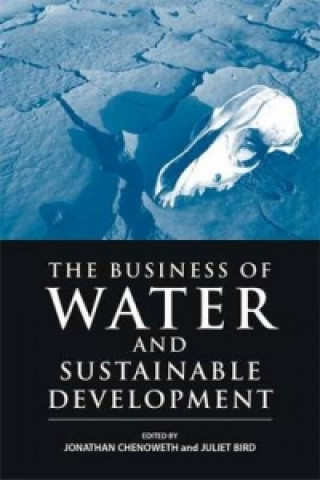
Livrare
Consilier de cumpărături





Nu se pretează? Nu contează! La noi puteți returna bunurile în 30 de zile
 Voucher cadou
orice valoare
Voucher cadou
orice valoare
Cu un voucher cadou nu veți da greș. În schimbul voucherului, destinatarul își poate alege orice din oferta noastră.
Business of Water and Sustainable Development
 engleză
engleză
 217 b
217 b
30 de zile pentru retur bunuri
Ar putea de asemenea, să te intereseze


A renewed commitment to improved provision of water and sanitation emerged in the 2002 Johannesburg Declaration on Sustainable Development. Although many of the statements in the Declaration were vaguely worded, making it hard to measure progress or success, the Plan of Implementation of the Summit, agreed by the delegates to the conference, clearly stated that: "we agree to halve, by the year 2015, the proportion of people who are unable to reach or to afford safe drinking water and the proportion of people who do not have access to basic sanitation". Given the United Nations' predicted growth in global population from 6.1 billion in 2000 to 7.2 billion by 2015, this commitment will pose formidable challenges. To meet it, by the end of just a decade and half, approximately 6.6 billion people will need to have access to safe drinking water supplies. This is more than the current population of the world, and involves not only maintaining existing levels of supply but also providing new or upgraded services to 1.7 billion people. The challenge for sanitation is equally daunting: 5.8 billion people will need to be serviced, including new access provision for 2.1 billion. Even if these ambitious targets are met, representing a major achievement for the global community, there will still be approximately 650 million people in the world without access to safe drinking water and 1.4 billion without sanitation. What is clear is the magnitude of the problem facing the international community in terms of water supply and sanitation. Continuation of the status quo and the type of progress made during the 1990s will not permit the Johannesburg targets to be met. Instead it will be necessary to promote a combination of many different, new and innovative approaches, each of which will contribute towards the overall targets. These approaches must include technological advances that identify new sources and improve the quality of those already in use; managerial techniques that increase the efficiency and effectiveness of service delivery at both micro and macro scale; and fiscal approaches that tap into additional financial resources to make improvements affordable. In the past each of these aspects was seen as primarily the responsibility of government, which supported research into technology, managed supply and disposal systems and provided the funds to pay for them. This view has changed - beginning in the 1980s and increasing in the 1990s with growing moves towards privatisation of many aspects of the water sector. Underpinning this has been a shift away from seeing water as a public good that is essential for life, with subsidised supply provided as part of an overall welfare system, to a more market-oriented approach where the state, although still responsible for maintaining universal access to water services, uses market forces to meet this aim. The Business of Water and Sustainable Development aims to illustrate the range of approaches that will be necessary if the percentage of the global population having access to adequate and safe water and sanitation is to be increased in line with the brave assertions from Johannesburg World Summit on Sustainable Development. Some of approaches will be large-scale "Western-style" improvements involving the creation of new business models, their effectiveness assessed by traditional approaches of fiscal and social analysis. Such schemes may be instigated and partly funded by governments, but are increasingly turning to the private sector for money and expertise. In contrast, many smaller communities would be better served by following another path to improved water supply and sanitation. Because of their size, location or traditions they may achieve better results through the adoption of local small-scale solutions. Non-governmental organisations have been very active in this area, but to extend their operations many are seeking to adopt a more business-like model. All water supply and waste disposal agencies, large or small, need to support and encourage continued research into technological solutions that seek out better, more sustainable ways to use our increasingly scarce supplies of good-quality fresh water.
Informații despre carte
 engleză
engleză




 Cum să cumpăr
Cum să cumpăr


































